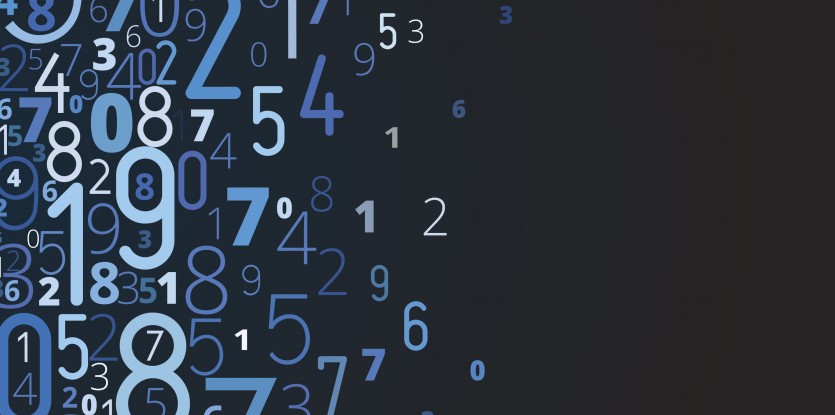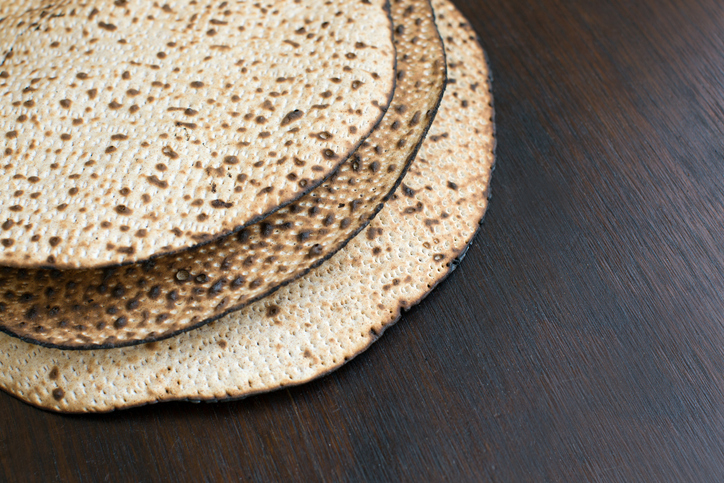On Sunday afternoons, the Rebbe would stand outside the door of his office to greet and bestow a blessing upon anyone who came to see him. He would often stand for hours as thousands of people filed by, many of them seeking a blessing or advice about a personal matter or spiritual dilemma. The Rebbe was once asked how he had the strength to stand all day, sometimes for seven or eight hours, to accommodate everyone. The Rebbe beamed and replied: “When you’re counting diamonds, you don’t get tired.[1]“
As the recent Florida election scenario amply illustrated, you don’t count until you’re counted. As the almost comical count and recount saga played itself out, many previously unknown individuals suddenly found themselves, or rather their votes, playing center stage in a riveting national drama. People came to an abrupt realization that they mattered, not only in a negligible sense but also in a very profound way, with serious repercussions for all of society.
The Torah portion of Shmot begins with a count of Jacob, his sons and their families, seventy in number, who came down to Egypt[2]: “Now these are the names of the sons of Israel who came into Egypt with Jacob; every man and his household they came. Reuben, Simeon, Levi and Judah, Issachar, Zebulun and Benjamin, Dan and Naphtali, Gad and Asher. And all the souls …were seventy souls.”
The narrative then describes how “the Children of Israel were fruitful, increased abundantly, and became very strong.”[3] The Jewish population in Egypt, from a mere seventy souls, experienced a phenomenal growth spurt, to become such a strong and mighty nation that they threatened the security of Pharoah’s Egypt. This verse, then, provides a likely reason for the count, to demonstrate the stark contrast between the Jewish people’s original modest number and subsequent remarkable increase.
Rashi, in his commentary on this verse, seems to suggest an additional reason for the count[4]: “Although [G-d] counted them by their names in their lifetime[5], He counted them again after their death, to make known how precious they are to Him. For they are compared to the stars, which He brings out and brings in by number and by their names, as it says: “He who takes out their hosts by number; He calls them by name[6]“.
What puzzles Rashi is why it is necessary to repeat the names of the sons of Jacob, who were already mentioned previously at the end of the book of Genesis. If the Torah wished to point out that the Jewish people increased in number, it would have only been necessary to relate that they numbered seventy, yet the twelve tribes are mentioned by name as well. Rashi therefore asserts that the names of Jacob’s sons are listed for the sole purpose of expressing G-d’s love for them.
If so, it appears that it is the mention of their names, rather than their number, that expresses G-d’s love, for the counting was repeated for a different purpose – to underscore their tremendous increase. In fact, the only names mentioned are that of the twelve tribes, while the number seventy includes also their children and grandchildren. Yet Rashi says in his commentary that “He counted them after their death, to make known how precious they are to Him”. The seventy descendents were counted “each man and his household[7]“, as an extension of the twelve sons of Jacob, indicating that the count was primarily focused on the sons of Jacob. Rashi therefore concludes that both the count and the mention of the names of Jacob’s sons displayed G-d’s love for them.
The counting and naming of objects confer significance and importance upon them. A child with a treasured rock or stamp collection will spend hours sifting through it, repeatedly counting each prized unit. The child might even apply a name to an especially valued or beloved item in the collection. Giving a name to an object raises it to an even higher level of regard and esteem. The name indicates that the thing possesses qualities so outstanding that it merits special recognition for itself.
The Jewish people are compared to the stars, G-d’s celestial jewels, which are lovingly counted each night, and set out by name. In the morning they are gathered in and once again counted by name. A count of stars focuses on the quality of a star that is common to all – namely its essence, its identity as a star. Thus each star is counted as no more or less than any other star. Being called by a name, though, delineates the star’s unique characteristics: its particular glow and beauty, as well as the spiritual qualities that emanate from it.
So too, each Jew has an essential soul, the “star” within, which makes us all equally great and precious before G-d. At the same time, each soul has unique qualities, which are reflected in a person’s name. Counting emphasizes the essential, indivisible quality that we all share, while being named highlights our individual strengths and attributes.
Being both counted and named reveals the essence of the individual, beyond his outer appearance. When the Jewish people are counted, the greatest and most distinguished is counted exactly the same as the most lowly and abject. Both contain an essential soul, which “are all equal, with one father for all.[8]” The name of a Jew also has a relationship to his essential soul. A human being carries the same name over the course of his entire lifetime – from when he is a vulnerable newborn to when he is a fully developed, accomplished adult. Thus, the name of a person is not connected to any of his external abilities, but to his inner character, which may still be latent within him. It is the mission of each person to reveal this dormant strength and utilize it towards positive achievements. Therefore, the inner beauty of the person must be made known to him, so that he can take advantage of his potent essential power to carry out his purpose. This is achieved through “counting by name”. Through this process, a person’s previously concealed strengths are revealed, so that they can be utilized for the maximum benefit of all of creation.
Although both counting and naming are relevant to the person’s essence, each addresses a different level of the soul. A count reveals each soul’s essence as it exists in the celestial spheres before its descent to earth. In the heavenly realm, every soul is indeed the equal of any other soul, for it has not yet been enclothed in the body that gives it its unique attributes. The name is given to the soul once it has descended to earth; a soul in the heavenly realms has no name. So the name is only a reflection of the soul’s essence after it has descended into the body. Being “counted by name” causes the soul’s essential quality, which is above the body and above a name, to illuminate the person from within the body.
The Book of Shmos begins: “These are the names of the Children of Israel who came to Egypt[9]“. Egypt is a symbol of the soul’s descent to earth. “Counting by name” is done prior to the soul’s descent to Earth, to give the soul the powers it needs to overcome any and all limitations imposed by the concealment of the corporeal world. The “counted” element of the soul has an advantage over its “named” element in the sense that it is transcendent, universal and indivisible. Yet the person carries out his mission in this world by virtue of the “named” element in his soul – the unique energies and abilities that he contributes to the world. Through these efforts, the essential soul itself achieves an elevation.
This is the significance of the sons of Jacob being counted[10] “in life and after death[11]“. Just as the stars are counted by name “when set out and when brought in”, the souls are counted at birth and after death. The first counting, “when set out” on the journey to earth, gives the soul, as it is enclothed in a body, the fortitude to withstand the negative and evil forces of the physical world. Through this initial investment of energy from the transcendent element of the soul, the person engages on his mission. The count is then repeated “when brought in”, upon the death of the person. This time, it is the “named”, or embodied element of the soul that elevates the soul’s essence.
Whether we are consciously aware of it or not, G-d continues to count each person by name, thereby infusing us with the spiritual energy to complete our unique mission in this world. Each person counts no more and no less than anyone else, but each individual has something to share that no one else possesses. We are all reflections of a single and indivisible essential soul. So too, are we are all dependent on each other to complete the elevation of that essential soul. Even one positive action by one individual can bring deliverance to the entire universe[12]. Each individual has a “vote” and a say, and no votes go uncounted, towards achieving the ultimate objective, which is the complete redemption, through our righteous Moshiach.
Based on address by the Rebbe, Shmot, 5725 (1965) [13]. By Chaya Shuchat.
_______________________________________
[1] Foreword to “Diamonds of the Rebbe”, Mordechai Staiman
[2] Shmot 1:1-5
[3] Shmot 1:7
[4] Rashi Shmot 1:1
[5] Genesis 35:22-26, 46:8-27
[6] Isaiah 40:26
[7] ibid 1:1
[8] Tanya ch. 32
[9] Shmot 1:1
[10] Although each Jew has unique characteristics, there are twelve basic prototypes, encapsulated by the twelve tribes, from which every Jewish soul derives. Each soul has a root in one of the twelve tribes, with a spiritual service that is in line with that tribe’s divine attributes. Therefore the verse emphasizes the count and names of the sons of Jacob, as they include all of the Jewish people.
[11] Rashi, ibid
[12] Maimonides, Mishne Torah, Hilchot Tshuva, 3:7
[13] Likkutei Sichot vol.6 Shmos 1, pp 1-12







